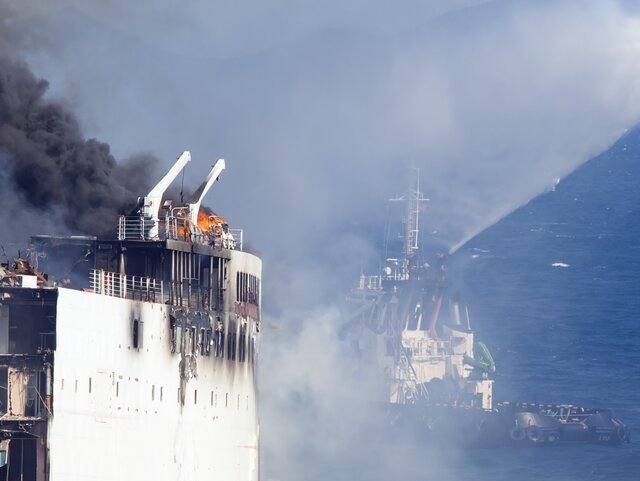The global electric vehicle (EV) market is growing rapidly. By 2026 the EV market is expected to have grown four-fold from its current position, attaining a value of over one trillion dollars.
But what have electric vehicles got to do with the maritime industry?
Quite a lot as it happens.
As the EV market continues to grow, expect to see more EV-battery related issues occurring both on freight and transport vessels.
Most importantly - EVs, or more precisely their batteries, pose fire and explosion risks to vessels.
How do EV batteries pose a fire and explosion risk to vessels?
There are a number of reasons why lithium-ion and other types of batteries used in electric vehicles can catch fire and/or explode:
- They are improperly manufactured
- Software faults, which can cause the battery to malfunction
- As a result of an accident or collision, or being dropped whilst in transit
- Electrical faults as a result of improper charging practices
- Thermal abuse - exposure to improper operating temperatures
Why should vessel and port owners be concerned about EV fires and explosions?
Aside from the obvious risk - fire - EV fires and explosions can lead to other hazardous events including explosions, shrapnel, the emission of hazardous vapours, secondary fires, electrocution.
All of these events can lead to serious injury or even death.
So, it’s important that vessel and port owners take advice now, to ensure they are both proactively prepared for EV fires and/or explosions, and able to deal with them safely should they occur onboard or shore-side.
Brookes Bell is able to offer you that advice, due to our experience of investigating fires and explosions both at sea and shore-side.
Brookes Bell’s EV fire safety advice
Our team of fire and explosion experts are able to provide you with both proactive and reactive advice in relation to lithium-ion and other battery related fires and explosions.
This advice covers the end-to-end requirements of a battery fire, ranging from what PPE should be used, advice on containment measures, personnel training requirements and more.
Speak to us today and find out how Brookes Bell can help you and your vessels or port facilities prepare for EV-based issues.

